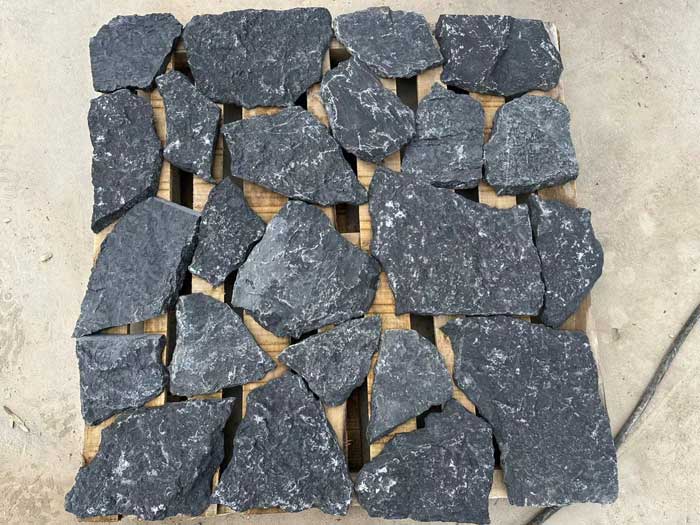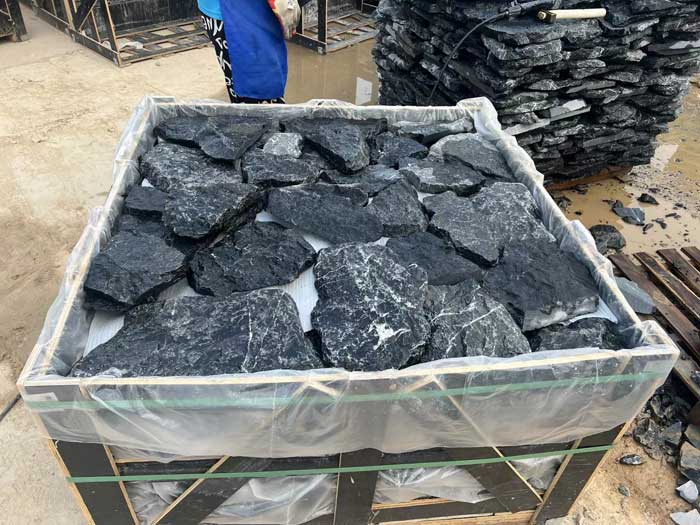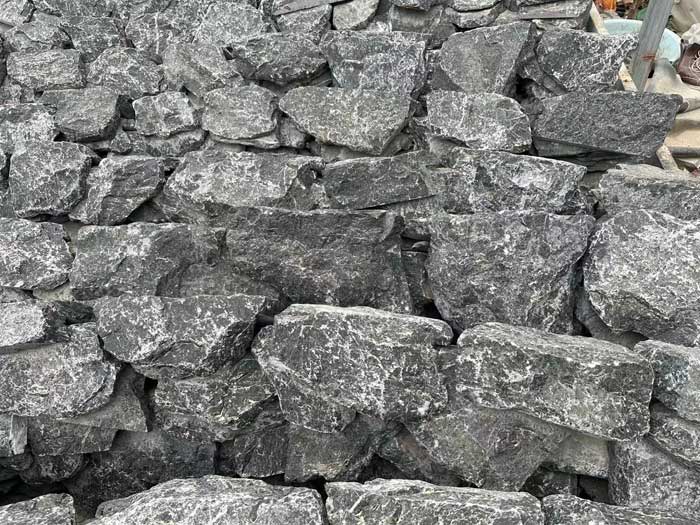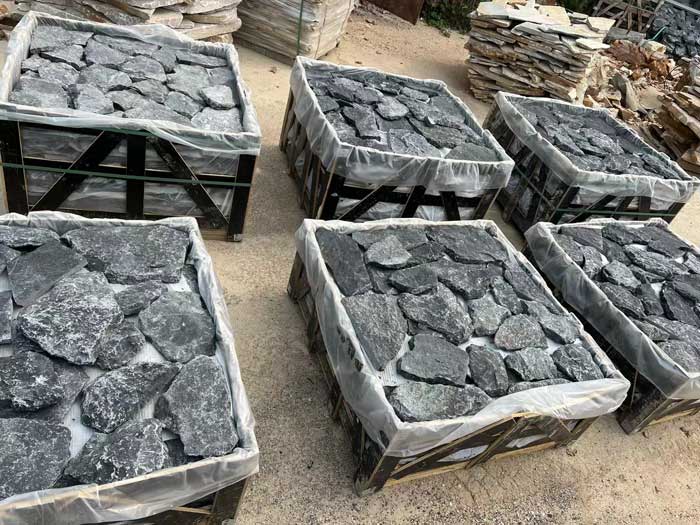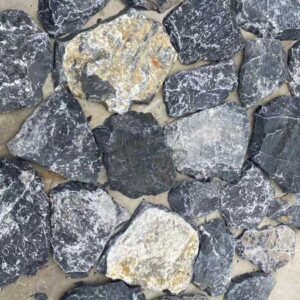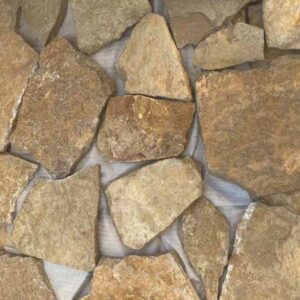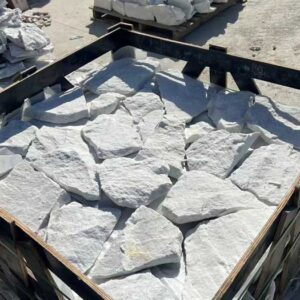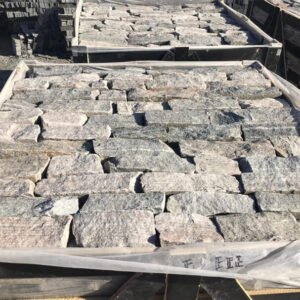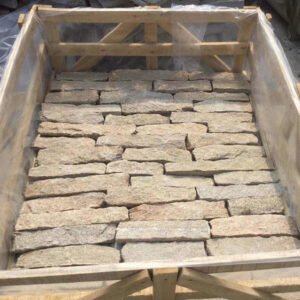Q: How does Free Form Natural Loose Stone Veneer Wall Cladding differ from pre-assembled panel systems?
A: Panel systems arrive as complete units with predetermined stone arrangement. You install the panel as-is with limited customization. Free form loose stone arrives as individual pieces. You select and arrange each stone, giving complete design control. This flexibility creates unique installations that command premium pricing. The tradeoff is that loose stone requires experienced mason skill rather than just installation speed.
Q: What installation skill level is required?
A: We recommend experienced stone masons with portfolio work showing successful loose stone or full-bed stone installation. Masons need to understand stone properties, adhesive application, layout planning, and traditional masonry technique. They also need experience with grinder tools and minor stone modification. This is not a product for general contractors or inexperienced installers.
Q: Can free form loose stone be dry-stacked without mortar?
A: Yes. Our product supports both dry-stack (tight, mortarless) and mortared installations. Dry-stack installations require patient stone selection and careful fitting. The mason picks pieces that naturally complement each other, sometimes using hammer and chisel for minor fitting. Any remaining gaps are filled with smaller stone chips. Mortared installations are more forgiving—you set stones with gaps then fill joints with mortar afterward. Your aesthetic preference and project timeline drive which method works best.
Q: Can loose stone be installed over any substrate?
A: No. Suitable backup walls include brick, concrete block, poured concrete, stucco, and engineered backup systems. The substrate must be structurally sound, stable, and dry. Substrate must be clean of dust, dirt, and loose paint. Verify that the substrate can support the material weight (65 kg/sq meter). Newer concrete benefits from aging a few months before stone installation. Some existing walls need structural repair before stone installation begins.
Q: Is sealing required?
A: For exterior installations, sealing every 3-5 years extends material life and resists staining. Interior installations rarely need sealing. Sealing is optional but recommended for high-traffic areas like commercial spaces or hospitality venues. Quality stone sealers are readily available and application is straightforward.
Q: How does your stone compare to manufactured alternatives?
A: Our natural stone comes from real geological processes—it has lived underground under pressure for millions of years. This makes it dense, durable, and beautiful in ways manufacturing cannot replicate. Manufactured stone often shows UV fading within 8-10 years. Our natural stone shows zero fading. Manufactured stone typically lasts 20-30 years. Our natural stone lasts 50+ years. The authentic look matters to discerning customers—they specifically request real stone.
Q: What color options do you offer?
A: We maintain collections in natural earth tones (creams, taupes, warm grays, rusts), cool neutrals (charcoals, blacks, cool grays), and mixed blends. Color availability depends on quarry sourcing. Some colors require longer lead times. We recommend ordering sample selections first so your design team confirms color choices before production begins.
Q: What’s your lead time for orders?
A: In-stock items ship within 15-25 days. Custom selections or specific finishes may require longer. We maintain warehouse inventory specifically to support project timelines. Rush delivery is available for an additional fee when schedule demands it. Confirm timelines during the quotation phase so your project schedule is protected.
Q: What warranty do you provide?
A: Our standard warranty covers material defects and manufacturing quality for the lifetime of the structure. Proper installation by qualified masons is required. Normal weathering, sealing maintenance, and installation technique are customer responsibilities. We back our material with confidence that comes from proven 50+ year field performance.
Q: How do you ensure quality consistency across large orders?
A: Every batch undergoes visual inspection and strength testing. Sample approval happens before production begins. Stones are sorted by color and size consistency to ensure batch uniformity. Manufacturing facility location in a premier quarry region provides geological consistency. Our reputation depends on delivering reliable material—we’ve built that reputation over decades of production.

